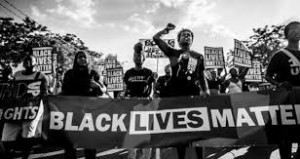 According to Howard McGary, “[c]itizenship, in the liberal tradition, is thought to provide one with the opportunity to flourish by arranging society, such that its basic structure does not unfairly inhibit or prohibit one’s pursuit of a chosen plan of life” (65). Student reflections in this section examine issues of citizenry in the African American community of Carlisle. They begin with a discussion of the significance of voting as a right of citizenship and the importance of African American participation in the electoral process. This discussion is highlighted by their participation in a voter registration drive that took place in February 2016, during the Black History Festival that was hosted by Hope Station.
According to Howard McGary, “[c]itizenship, in the liberal tradition, is thought to provide one with the opportunity to flourish by arranging society, such that its basic structure does not unfairly inhibit or prohibit one’s pursuit of a chosen plan of life” (65). Student reflections in this section examine issues of citizenry in the African American community of Carlisle. They begin with a discussion of the significance of voting as a right of citizenship and the importance of African American participation in the electoral process. This discussion is highlighted by their participation in a voter registration drive that took place in February 2016, during the Black History Festival that was hosted by Hope Station.
To discover how African American citizens of Carlisle survived and flourished in the 19th and early 20th centuries, students also researched historically Black schools, churches, and prominent Black families that were found in photographs at the Cumberland County Historical Society. This project was prompted by Hope Station’s desire to feature a Black history exhibit at the festival. The reflections of students in this section pay particular attention to issues of distributive justice in educational access and resources. Moreover, students who researched prominent families of Carlisle who are buried in Memorial Park’s Lincoln Cemetery uncovered the families’ economic statuses and military affiliations. Ultimately, the students participated in recovery work, excavating the life stories of Black Carlislians that are buried in historical archives.
Leave a Reply